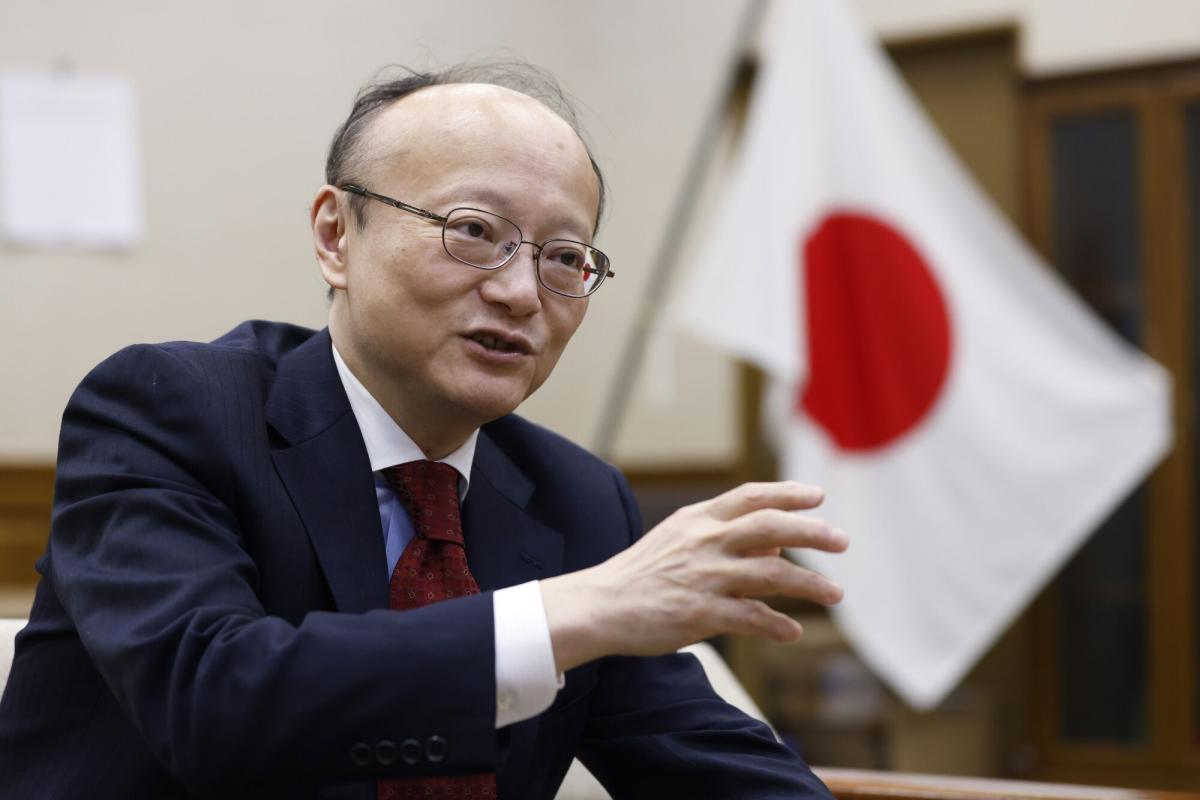(Bloomberg) -- Japan’s top currency official said recent yen weakness is odd and out of line with current economic fundamentals, reaffirming his commi
(Bloomberg) — Japan’s top currency official said recent yen weakness is odd and out of line with current economic fundamentals, reaffirming his commitment to act if needed to prevent excessive swings in the exchange rate.
Most Read from Bloomberg
“I strongly feel the recent sharp depreciation of the yen is unusual, given fundamentals such as the inflation trend and outlook, as well as the direction of monetary policy and yields in Japan and the US,” said Masato Kanda, vice finance minister for international affairs, in an interview Friday. “Many people think the yen is now moving in the opposite direction of where it should be going.”
Kanda’s remarks come amid intense market scrutiny over whether the government will step into the currency market to stem recent falls in the yen following the Bank of Japan’s decision last week to raise interest rates for the first time since 2007. The currency slid to a 34-year low of 151.97 yen per dollar on Wednesday, prompting Finance Minister Shunichi Suzuki to ramp up verbal warnings with his strongest hint this year that Japan could intervene.
Finance authorities also convened a three-way meeting, a gathering often used to show heightened concern among policymakers over market movements.
“We are currently monitoring developments in the foreign exchange market with a high sense of urgency,” said Kanda. “We will take appropriate measures against excessive foreign exchange moves without ruling out any options.”
Kanda reiterated the view that Japan is not guarding specific exchange-rate levels, but is looking at the direction and speed of movements when assessing developments in the currency market, comments that echoed Suzuki’s earlier Friday.
Suzuki said Japan had no defense line on exchange rates, when asked whether the 152 mark against the dollar was a line in the sand. Tokyo’s biggest intervention splurge in 2022 came after the yen approached 152, though the slide in that direction was much more rapid than currently seen.
Read more: Dollar-Yen Tilted Upward as MOF Intervention Still Unlikely
Market participants try to gauge the proximity to possible market intervention from the language used by the authorities.
“I am just saying what I think is right at the time,” Kanda said, referring to his choice of words.
Behind the yen’s weakness is the view among market players that the difference in policy rate and yields between Japan and its peers including the US will remain wide for some time.
BOJ Governor Kazuo Ueda pledged to maintain an accommodative environment when the bank decided to lift the world’s last negative rate last week, pouring cold water on expectations that the BOJ would soon consider a second hike.
Naoki Tamura, the BOJ Board’s most hawkish member, also signaled he favors a gradual process toward normalization, though he pointed out that keeping policy easy isn’t inconsistent with another rate hike.
Kanda said the BOJ’s decision was a milestone that showed a virtuous price-wage cycle was in place with sustainable inflation in sight. The MOF official also cited strong wage gains during this year’s annual wage negotiations and record spending by companies as positive signs for Japan’s economy.
“Finally we are in an economic situation that enables the BOJ to begin normalization,” said Kanda. “We have come a long way.”
Kanda said he understands criticism regarding more than a decade of massive central bank easing. The side effects include market dysfunction and stagnant productivity caused by lingering zombie firms and other moral hazards, he said.
In the longer term, Kanda suggested that more structural reform is vital to restore the yen’s attractiveness. Earlier this week, the MOF official set up an expert panel to discuss desirable policies for the Japanese economy by taking into account changes seen in the balance of payments.
“It’s important for the yen’s attractiveness to strengthen Japan’s earning power through trade in goods and services with other countries and to make Japan an attractive investment destination worldwide,” he said.
Most Read from Bloomberg Businessweek
©2024 Bloomberg L.P.
finance.yahoo.com

COMMENTS